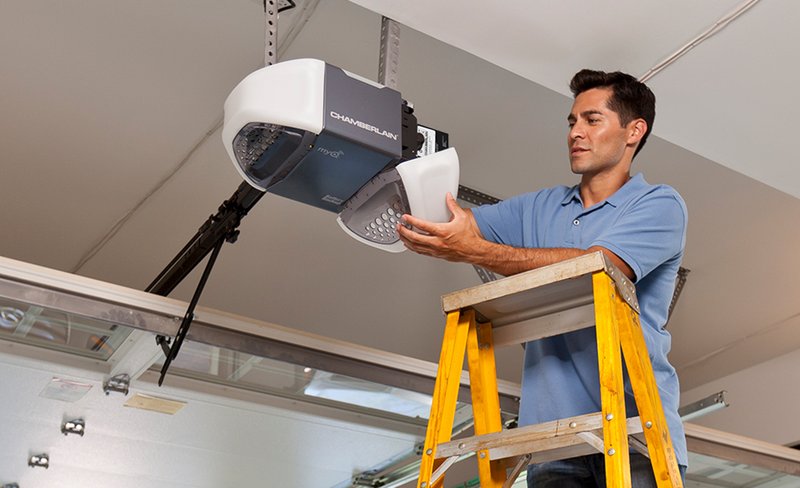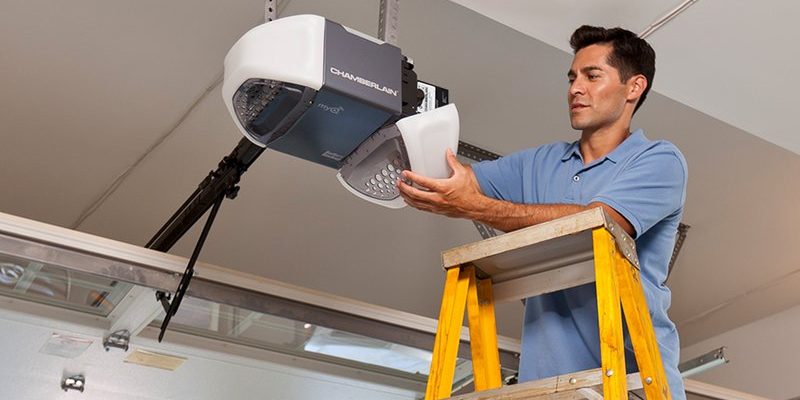
Understanding why your garage door opener is popping can help you prevent further damage and ensure your door opens smoothly every time. While it may sound complex, troubleshooting this issue can be straightforward, especially if you break it down step by step. So, grab your favorite hot drink, and let’s dive into the world of garage door openers.
Understanding How Your Garage Door Opener Works
Before we start troubleshooting, let’s take a moment to appreciate how your garage door opener functions. At its core, a garage door opener uses a motor, chains, and a series of pulleys to lift and lower the door. Think of it as a small orchestra with various instruments working together harmoniously.
A common remote type for garage doors is the typical wireless remote, which emits a radio signal to the opener. When you press the button, you’re basically sending a cue to your opener, telling it to get to work. If everything is working smoothly, you’ll hear a soft hum and a quiet movement. But if you hear pops, it’s like hearing a discordant note in an otherwise pleasant melody.
Common Causes of Popping Sounds
Now that we’ve got the basics down, let’s dig into the potential culprits behind those disconcerting popping noises.
1. Misalignment or Damage to the Tracks
One of the most common reasons for a popping sound is the misalignment or damage to the garage door tracks. These tracks guide the door as it opens and closes, and if they’re bent or obstructed, the door might be struggling to move along them properly.
To check for this, visually inspect both tracks. Look for any noticeable bends, gaps, or debris that could be causing interference. Even a small obstruction can lead to major noise issues, so make sure you clear any dust or cobwebs that might be blocking the path.
2. Worn Out Rollers
Another potential reason for the popping noises could be worn out rollers. Over time, the rollers that help the garage door move can wear down, causing the door to sit unevenly in the tracks.
To inspect this, try lifting the door manually. If you notice it’s difficult to move or feels uneven, you might need to replace the rollers. This isn’t as intimidating as it sounds! Just ensure you have the right replacement parts and follow the manufacturer’s guidelines, and you’ll have the door rolling smoothly again.
3. Loose Hardware
Garage doors are held together by various bolts and nuts, and over time, vibrations can cause these to become loose. When they loosen, you might hear pops as the door struggles to lift or settle.
Take a moment to check all the hardware—you’ll want to ensure everything is tightly secured. It’s a simple fix: just grab a wrench and tighten whatever you can. But try to avoid over-tightening, as that can cause other issues down the line.
Inspecting the Garage Door Opener Itself
If the tracks, rollers, and hardware all seem fine, it might be time to check the garage door opener itself.
1. Check the Power Source
First things first: is the opener getting enough power? If power is unstable, it can cause erratic functioning, leading to popping sounds. Make sure the opener is plugged in securely and that there are no frayed wires.
If you’re using a battery backup feature, check the battery’s condition as well. Just like you wouldn’t run your phone on a dying battery, your garage door opener needs a steady power supply to function properly.
2. Inspect the Motor Unit
Sometimes, the motor unit can become dirty or clogged with dust. If you’re comfortable getting a little hands-on, carefully inspect and clean the motor unit. Make sure there are no obstructions and that it’s free from debris.
Additionally, listen closely; if the motor is making unusual noises itself—beyond the layering pops—it could be wearing out and may need to be replaced.
3. Remote Control Issues
Your remote control can also play a role in how smoothly the garage door opens. It might be sending inconsistent signals if it’s malfunctioning. To troubleshoot, try using another remote (if available) or manually operating the door. This way, you can see if the problem lies in the remote or the opener itself.
When to Call a Professional
So, after all your troubleshooting steps, what if you still hear popping noises? Here’s the thing: sometimes, it’s best to call in a pro. If you’ve done your best and the pops are persistent, it could indicate more serious internal problems.
Having an experienced technician take a look can save you from more extensive repairs down the line. They can identify issues quicker than you might on your own and often come with solutions you might not have considered.
Regular Maintenance for Prevention
As they say, an ounce of prevention is worth a pound of cure. Regular maintenance of your garage door system can help prevent popping sounds from developing in the first place.
1. Lubricate Moving Parts
Make it a habit to regularly lubricate the moving components of your garage door opener. Using a garage door lubricant or silicone spray can keep parts moving smoothly. Just a light application can make all the difference!
2. Schedule Annual Inspections
Think of scheduling an annual inspection as a health check for your garage door system. A professional can help catch small problems before they turn into major headaches. Plus, they’ll have the tools and training to diagnose issues you might not even notice.
3. Clean the Tracks Regularly
Staying on top of cleaning the garage door tracks is a simple yet very effective maintenance step. It helps ensure nothing is blocking the door’s path, reducing the chances of those uninvited popping sounds.
Wrapping Up
In conclusion, troubleshooting a garage door opener that pops with each raising doesn’t have to be an overwhelming task. By understanding how your garage door works and taking a step-by-step approach, you can often identify and resolve the issue yourself. From checking the tracks and rollers to inspecting the opener, knowing what to look for empowers you to keep your garage door running smoothly.
If all else fails, don’t hesitate to bring in a professional. They can help ensure your garage door remains a reliable part of your home for years to come. Happy troubleshooting!
